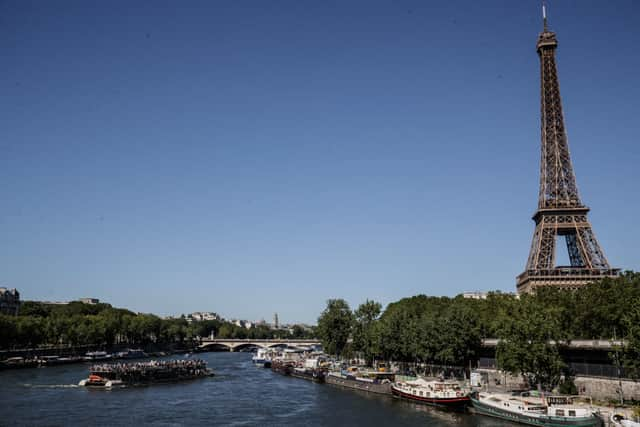France entry requirements: what are Covid rules for UK travellers - do I need proof of vaccination to travel?
and live on Freeview channel 276
France has lifted all of its Covid travel restrictions in a welcome boost for UK travellers heading to the country this summer.
Previous measures required proof of vaccination or a negative Covid test to enter, but all emergency restrictions introduced during the pandemic have now been dropped.
Advertisement
Hide AdAdvertisement
Hide AdThe French Minister of the Interior and Overseas said in a statement: “Faced with the new phase of the pandemic, the border health control system is lifted, in accordance with the law putting an end to the exceptional regimes created to fight against the epidemic linked to Covid-19."


What are the entry rules for France?
As of 1 August 2022, all Covid restrictions for travellers to France have been lifted. This means that travellers visiting France from the UK:
- are no longer required to present proof of vaccination
- are no longer required to fill out any forms prior to arrival, such as a justification for travel or a sworn statement
- are no longer required to show proof of a negative PCR or antigen test upon arrival in France
The rules also apply to travel between metropolitan France and each of the French overseas territories. Similarly, no travel justification is required by the French authorities to travel to another country from France.
The Eurostar website has also been updated, stating that passengers travelling from the UK no longer need to show proof of vaccination, recovery of a negative Covid test. This applies to all travellers, irrespective of their nationality or vaccination status.
Advertisement
Hide AdAdvertisement
Hide AdHowever, the bill allows the return of Covid measures at short notice, meaning restrictions could be reintroduced in the event of a new variant outbreak, or to ease pressure on the country’s healthcare system.
The statement from the French Minister adds: “In accordance with the law, the government finally retains until January 31, 2023 the possibility of activating “emergency brake” measures for a maximum period of two months, after consulting the High Authority for Health in the event of an appearance and circulation of a new variant of Covid-19 likely to constitute a serious health threat or, in overseas territories, in the event of a risk of saturation of the health system.
“The measure can be brought back until March 2023, if there is cause for concern of new variants or pressure on the country’s healthcare system.
Before the changes, all travellers aged 12 or over had to provide either a negative Covid test result or proof of full vaccination to enter France, and if more than nine months had passed since the final dose of a vaccine course, a booster was required to qualify as fully vaccinated.
Are there any other requirements to enter France?
Advertisement
Hide AdAdvertisement
Hide AdIf you are travelling to an EU country (except Ireland), or Switzerland, Norway, Iceland, Liechtenstein, Andorra, Monaco, San Marino or Vatican City, you must follow the Schengen area passport requirements.
Rules state that your passport must be:
- issued less than 10 years before the date you enter the country (check the ‘date of issue’)
- valid for at least 3 months after the day you plan to leave (check the ‘expiry date’)
You must check that your passport meets these requirements before you travel. If your passport was issued before 1 October 2018, extra months may have been added to its expiry date.
At French border control, you may also need to:
- show proof of where you intend to stay, such as a booking confirmation or proof of address if visiting your own property (e.g. second home)
- show proof of insurance for your trip
- show a return or onward ticket
- prove that you have at least €120 per day for the duration of your stay.
Do I need to wear a face mask in France?
Wearing face masks on public transport is no longer compulsory in France, although some towns and cities may require coverings to be worn on public transport. You should check local mask rules before you travel.
Some travel operators, such as airlines, may specify types of masks to be worn on board and may encourage travellers to take spares for long journeys.
Advertisement
Hide AdAdvertisement
Hide AdYou should visit the French Government Coronavirus Information page or use the ‘TousAntiCovid’ digital app for the latest information on restrictions.
From 1 August 2022, face masks are no longer mandatory in health establishments, but remain strongly recommended.
Comment Guidelines
National World encourages reader discussion on our stories. User feedback, insights and back-and-forth exchanges add a rich layer of context to reporting. Please review our Community Guidelines before commenting.
